Major Female Figures in Islamic Jurisprudence: Ṣaḥābiyyat
It is undeniable that female Muslim jurists played a pivotal role in the development and growth of Islamic jurisprudence. From the early period of Islam to contemporary times, several female figures extensively contributed to the growth and expansion of Fiqh in their areas and eras. However, the jurisprudential contributions of female jurists drew less attention in the public platform and academic discourses. This study comprises brief accounts of female jurists of four schools of Islamic law in chronological order. The discussion in this research is divided into three periods of time, namely (1) the early period of Islam, (2) the medieval period of Islam and (3) the later period of Islam.
Female Jurists in The Early Period of Islam
In the early period of Islam, so many pious Muslim women exhibited their intellectual potentials and uncontrollable thirst for acquiring knowledge, whether it may be judicial or theological. Ummahāth al-Muʾminīn very actively stood as good solution for juridical problems arising around the Muslims after the passing away of Prophet Muhammad ﷺ as people began to move towards ʿĀyisha and other wives. Prophet's wives confidently issued fatwā in each situation, being energized from the durable companionship with the Messenger of Allah. Other than Ummahath al-Muʾminīn, some Saḥābiyyāt like Asmā' bint Sakan and Zaynab bint Abī-Salma finished their role perfectly by conducting jalsa and setting out long journeys to remote villages to prosper their knowledge. Followed by Ṣaḥābiyyat, some Tābiʿiyyat also came forward to the mainstream of development of fiqh discourses. Below are brief details of major female scholars who contributed to Islamic Jurisprudence's growth in the earlier period.
Ṣaḥābiyyat
ʿĀyisha
Umm al-Muʾminīn ʿĀyisha was the forerunner among Prophet's wives in almost every disciplines of knowledge, and she is considered as a great authority of Fiqh among her contemporaries whether it may be male or female. Veteran Saḥābās repeatedly contacted her to clarify their confusion in juristic issues like inheritance and others. From the period of her father Abū bakr (r), ʿĀyisha became an independent source of Fatwā and Ijtihād and continued it to her death at the age of 58.
ʿUmar bin Khaṭāb was always turned to her to ask about the Prophet's life with family and learned the Islamic ruling related to female legal issues. Almost every Ṣaḥābā including Abū bakr, ʿUmar, his son Ibn ʿUmar, Abū Hurayra, ʿAbdullāh ibnu ʿAbbās,ʿAbdullāh bin Zubayr, Jābir bin ʿAbdillāh and others, extensively, depended on her for clarifying several cases. There are some instances in Ḥadīth on her fatwā and answers which sustain as an absolute epitome of her mass proficiency in Islamic jurisprudence.
ʿAbdullāh bin Mūsa went to ʿĀyisha and asked about Wiṣāl (Consecutive fasting without any particular interval) and performing two Rakʿat after ʿAsar prayer. He additionally asked her about the day in which people normally confuses or take contradictory views about the beginning of Ramaḍān[i]. When he came back from her, ʿAbdullāh bin ʿUmar and Abū Hurayrah enquired to him about the meeting and said in unison: Prophet's wives are great knowledgeable persons in the world.[ii]
Ummu Salama
Umm al-Muʾminīn Ḥind bint Abū Umayya was a woman par excellence in knowledge and Fiqh. She was widely known as the most vivacious and wise lady in Arabian Peninsula due to her timely interference in the crucial Hudaybiyya treat[iii] and her energetic activities in the political and scholastic area. Till her death in h 91, she stood as an unbeatable source of power and knowledge, especially in Fiqh[iv]. Even though her scholarly works are less compared to that of ʿĀyisha, text and Sunna expounds numerous examples of her fatwā and answers.
She reported almost three hundred and seventy-eight hadīth from Prophet صلى الله عليه وسلم and a number of them are related to Islamic jurisprudence. Umm al-Muʾminīn Ummu Salma died in 59 h and she was the last one to die from Ummahat Ul Muʾminīn.[vi]
Fāṭima al-Zahra'
Fāṭima bint Muḥammad ﷺ is the most resembling figure to Prophet ﷺ in innate nature and physical appearance. The apostle loved her more than anyone on the planet and thus she secured the title of "The leader of the world's women". As she was the first-ever daughter of the Messenger, Fāṭima got much affection from him that influenced her entire life positively and constantly became the embodiment of the Prophet's endless love to anyone in the world. What is more than that Prophet ﷺ once articulated her as part of his own body?
Fāṭima al-Zahra educationally benefited from both her father and husband Ali. Due to her deep propinquity to both of them, she became a great authority of knowledge, including Ḥadīth and Fiqh. Her reports and actions became a source of Fiqh afterwards.
Ummu Dardā' al-Kubrā
Khīrat bint Abū Hadrad al-Aslami, known as Ummu Dardā' al-Kubrā, was one of the eminent jurists among ṣaḥābiyyāt. She became distinguished in her society because of her in-depth knowledge of jurisprudence and sharp views on the legal issue.
She acquired ʿIlm from the Messenger and her spouse Abu al-Dardā' ʿUwaymir al-Ansāri. Moreover, numerous scholars of next-generation including Maymūn bin Miḥrān, Ṣafwān bin ʿAbdullāh, and Zayd bin Aslam and Ummu Dardā' reported Ḥadīth from her. She passed away in Syria during the caliphate of Othman bin ʿAffān.
Asma' bint Sakan
Asmaʾ bint Yazīd ibn Sakan al-Anṣāriyyah, cousin of Murād bin Jabal was a legendary scholastic figure in Arabian Peninsula and has known as "the orator of ladies". Along with her profound cognizance in Islamic jurisprudence, she was reported by Imāms of four sunan and narrated 81 ḥadīth from Prophet ﷺ.
Bint Sakan was famous as representative of ladies of Madīna to ask questions to the Prophet ﷺ to learn Fiqh and other knowledge and teach them back. Prophet ﷺ praised her many times for her painstaking efforts for acquiring knowledge. She had many legal experiences and knowledge pertaining to the marital affairs as she reported more than fifteen hadīths related to Talaq and it's after proceedings.
Ḥamna bint Jaḥsh[x]
She is the sister of Umm ul-Mu'minīn Zaynab bint Jahsh and ʿAbdullah bin Jahsh, and was the wife of Musab bin ʿUmair, and after his demise, she married to Talḥat bin ʿUbaidillah. She reported several prophetic traditions. Ḥamna was very devout to Allah and dedicated to Islam in all manners. She reported hadīths about jinayat (Islamic penal code) and more than ten hadith about menses and menstrual period.
Fāṭimah bint Qays
She was one of the first migrants of Islam to Madina and known as the great reporter of hadith in the Islamic world. Her main focus was on Munākahāt of Islamic jurisprudence. So, she narrated hadīths about divorce, triple talāq, haram on parallel proposal for wedding, waiting period after talāq and caretaking and nurture by the husband during this period.[xi]
Ummu Qais bint Mihsan
She is the sister of ʿUkkāsha bint Mihsan (martyr in the battle against Musaylimah) and one of the early female migrants along with the Messenger of Allah ﷺ. She was the wife of ʿAmr bin ʿAs. She reported many hadīths mainly related to ʿIbādath, rituals of Islam.
Likewise, Asmā' bint Abī Bakr, Zaynab bint Jaḥsh are other two jurists from Ṣaḥābiyyat. The list is not exhaustive but only some of them are mentioned here who seem to have contributed largely. In the second part of this article, major Tābiʿiyyat who contributed to the growth of Fiqh will be discussed.
Endnotes:
[i] Aḥmad bin Ḥanbal ʾAbū ʿAbdullāḧ Al Shaybāni, Musnad Aḥmad bin Ḥanbal (Cairo, Muassasat Qurṭuba,1987)vol 6,p125
[ii]Musnad Aḥmad bin Ḥanbal, v l 6, p 167.
[iii] Abdul Halīm MuḥammadʾAbū Shaqa, aḥrīrul mara’h fi ʿAthar al risala,(Kuwait and Cairo Darul qalam publication and distribution, 2002)
[iv]Tarīkhul Fiqh al Islāmi, vol 1, p 323.
[vi] MuḥammadAl Hasn al-Hajwi al-Sālibi, Al Fikru Sāmi fi Tarīkhil Fiqhil Islami, (Rabat, Idarat Al Marif,1345 H), p 155.
[x]Musnad Ahmad,v 6,p:311
[xi] Siyar Aʿlām al-Nubalā’, v:2,p:319
(Sayyed Mashur Hudawi, Lecturer, Quran Department, Straightpath International School)
Disclaimer
The views expressed in this article are the author’s own and do not necessarily mirror Islamonweb’s editorial stance.

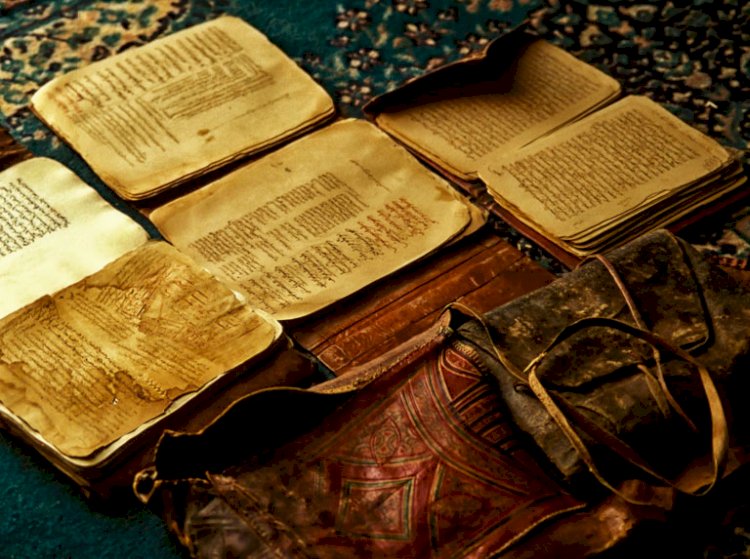



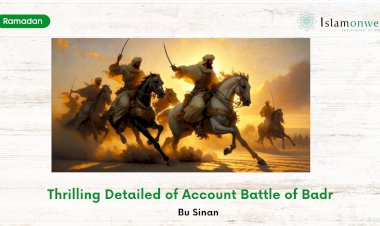
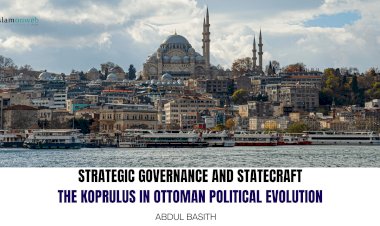

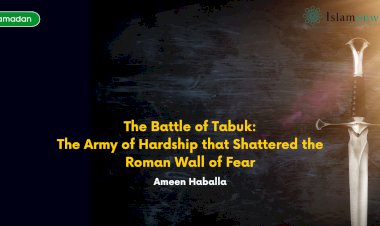
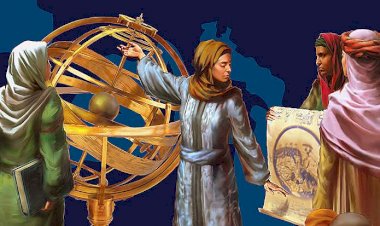
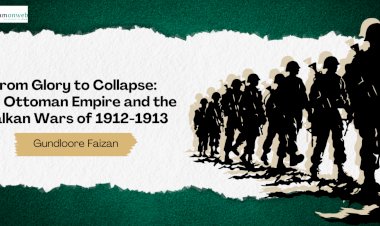














Leave A Comment